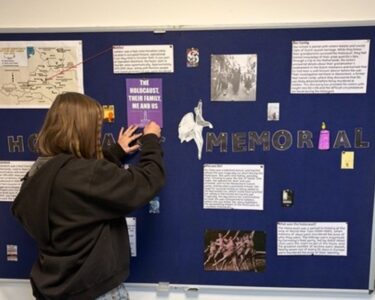What are the challenges in and the challenges of education? Are all challenges opportunities? How do we respond to and how might we pre-empt educational challenges?
Our responses to such questions are determined by our personal circumstances and cultural contexts. But at a time when commentators speak of a global ‘gigantic educational crisis’, borne of how over a billion young people have experienced severe disruption to their education during the COVID 19 pandemic, the matter of ‘challenge’ and challenges unavoidably acquire new complexions. This is especially so when we consider how the pressures of the pandemic have intersected with long-standing systemic challenges in the English education system, and when we reflect on the many adverse consequences of school closures. Whilst COVID 19 may have created opportunities to rethink education and raised public regard for teachers, this has not lessened the demands placed on the teaching profession. And, as we move further into the unknown territory of post-lockdown, it seems reasonable – even prudent – to expect more but challenges to come.
It is against this uncompromising backdrop that myself and colleagues from the UCL Centre for Holocaust Education have published a new, open access collection with UCL Press entitled Holocaust Education: Contemporary challenges and controversies. As the title indicates, our focus is on how the questions at the top of this blog play out in the context of teaching and learning about the Holocaust. Drawing on our landmark research into teaching practices and students’ knowledge and understanding we examine a range of issues, including: the role of knowledge, the notion of ‘Holocaust lessons’, Holocaust education in primary schools, teaching about Britain and the Holocaust, antisemitism, attitudes of Muslim students, and the use of graphic imagery. Of course we are aware there are many other issues in the field; we do not claim the book to be comprehensive, nor do we profess it is to be taken as the final word on these matters. But in shining a light on these issues we hope to increase awareness, stimulate thought and provoke debate.
Since education is dynamic and multidimensional, challenges and controversies can – and do – emerge and recede in different ways at different moments in time. As our collection entered into production, the spread of coronavirus and the lockdown which followed brought unprecedented challenges to teachers across the country. In the case of Holocaust education, the timing was particularly inopportune. The 75th anniversaries of the liberation of Bergen-Belsen in April and VE Day in May were high-profile commemorative moments which, ordinarily, teachers could have used to explore connections between Britain and the Holocaust: a topic that we know students have particular misunderstandings about. In the event, the shift to remote teaching and learning inevitably reduced such opportunities. Moreover, this development also occurred at a time in the school calendar when many schools would commonly be beginning schemes of work on the Holocaust.
Like all areas of the curriculum, the transition to online teaching about the Holocaust has been accompanied by numerous practical difficulties. At the same time, however, this move has also brought some specific issues and challenges, as Sam Ineson – a teacher from Manchester Enterprise Academy – has recently recounted. Instinctively this may not sound surprising; what makes this intriguing though is that the field of Holocaust education has seen a veritable digital turn over the past decade. The creation of ‘virtual Holocaust survivors’ has perhaps been the most headline-grabbing innovation; more broadly there has been a proliferation of online resources produced by major museums and independent institutions, as well as public-facing historians. These have been supplemented by the digitisation of archival documents which now join the thousands of hours of filmed survivor testimony already available at institutes like the Fortunoff Video Archive and the USC Shoah Foundation. All in all, even before lockdown teachers intending to teach the Holocaust had at their disposal more online resources than ever before. How, then, can we account for why teaching the Holocaust in our ‘new normal’ is so challenging?
Unsurprisingly there is no singular explanation, but answers can be found. At an elemental level, simply creating digital material is clearly no guarantee for effective teaching and learning. Instead, online resources must be accompanied by an online pedagogy – one which, amongst other things, is cognisant of how fundamental exercises such as questioning need to be understood differently in the remote setting. This, of course, goes hand in glove with professional development opportunities and provision that can help teachers to take ‘key steps’ to enhance remote learning. And then there is the matter of students themselves: teachers’ being as aware, as informed and as prepared as possible about the particular circumstances of their students, and being conscious that the way we have ‘difficult conversations’ – including those about death – have undergone transformation with the pandemic.
Many of these answers are, of course, not exclusive to Holocaust education. This is not to say that there aren’t specific issues related to teaching this topic that have been animated by COVID 19 and the lockdown: there are, and if we were writing Holocaust Education: Contemporary challenges and controversies today, there would almost certainly be a chapter about online teaching and learning. Rather it is to instead highlight an underlying truth: namely, that in thinking through the challenges of teaching and learning about the Holocaust – be it in the literal or the virtual classroom – we can learn more about the challenges in, and the challenges of, education writ large.
Dr Andy Pearce, Associate Professor in History and History Education
UCL Centre for Holocaust Education
Co-Editor, ‘Holocaust Education: Contemporary Challenges and Controversies’.



